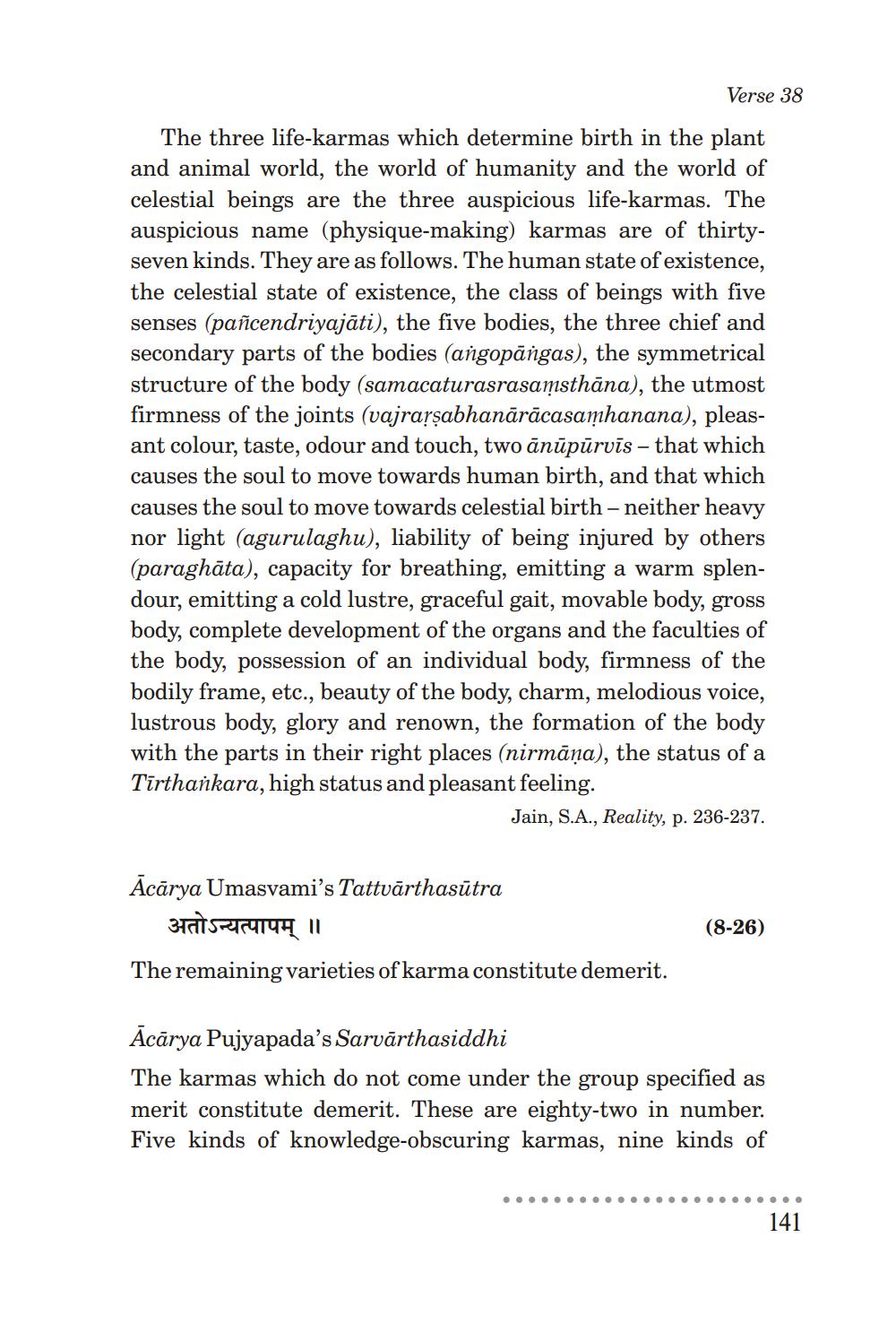________________
Verse 38
The three life-karmas which determine birth in the plant and animal world, the world of humanity and the world of celestial beings are the three auspicious life-karmas. The auspicious name (physique-making) karmas are of thirtyseven kinds. They are as follows. The human state of existence, the celestial state of existence, the class of beings with five senses (pañcendriyajāti), the five bodies, the three chief and secondary parts of the bodies (angopāngas), the symmetrical structure of the body (samacaturasrasamsthāna), the utmost firmness of the joints (vajrarṣabhanārācasamhanana), pleasant colour, taste, odour and touch, two ānūpūrvīs – that which causes the soul to move towards human birth, and that which causes the soul to move towards celestial birth - neither heavy nor light (agurulaghu), liability of being injured by others (paraghāta), capacity for breathing, emitting a warm splendour, emitting a cold lustre, graceful gait, movable body, gross body, complete development of the organs and the faculties of the body, possession of an individual body, firmness of the bodily frame, etc., beauty of the body, charm, melodious voice, lustrous body, glory and renown, the formation of the body with the parts in their right places (nirmāņa), the status of a Tīrthankara, high status and pleasant feeling.
Jain, S.A., Reality, p. 236-237.
Ācārya Umasvami's Tattvārthasūtra
अतोऽन्यत्पापम् ॥ The remaining varieties of karma constitute demerit.
(8-26)
Ācārya Pujyapada’s Sarvārthasiddhi The karmas which do not come under the group specified as merit constitute demerit. These are eighty-two in number. Five kinds of knowledge-obscuring karmas, nine kinds of
141




